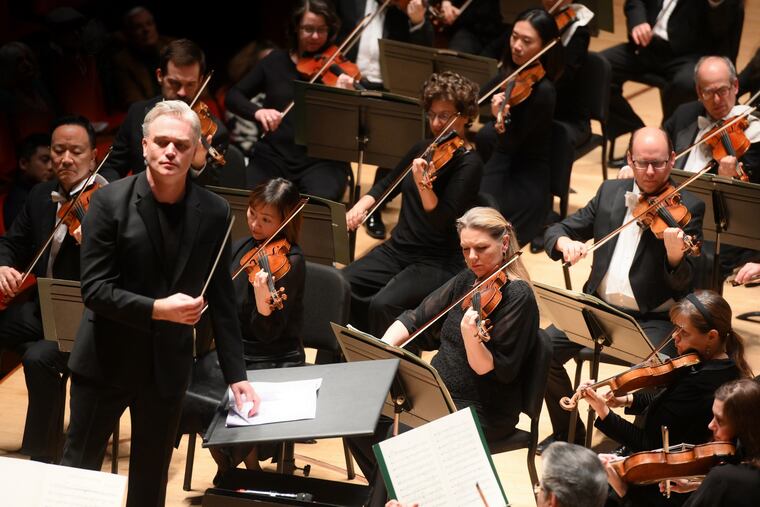Conductor Edward Gardner takes the Philadelphia Orchestra to Xanadu in his debut
Like its inspiration, William Randolph Hearst, 'Once Upon a Castle' is larger than life.

A visit to Xanadu, an anti-war musical protest, and a popular set of variations were the vivid components of Edward Gardner’s debut with the Philadelphia Orchestra.
There’s no obvious connection among the works. And yet personal statements ran through the music.
The 45-year-old British conductor let us know Thursday night through Elgar’s “Enigma” Variations that he is a traditionalist. The work was solid and solidly middle ground in many ways. In the “Nimrod” variation, Gardner wasn’t overly reverent, for instance. And you might have wanted the conductor to ask for greater volume from organist Peter Richard Conte at the end of the piece.
Still, Gardner elicited a wonderfully fluid Brahmsian feel from the “C.A.E.” variation carrying the initials representing Elgar’s wife. It was love in sound.
It helps to know the personal predilections of Michael Daugherty before you experience his Once Upon a Castle, a “symphonie concertante” for organ and orchestra. Daugherty is known for importing pop culture figures into the classical world, but even more than just highlighting its kitsch element, Daugherty recognizes pop culture as America’s truly great vernacular.
One of his works plays with the idea of plastic pink flamingos, and his Lost Vegas has a movement inspired by Learning from Las Vegas, the highly influential 1972 book by Philadelphians Robert Venturi, Denise Scott Brown, and Steven Izenour.
Once Upon a Castle takes its inspiration from William Randolph Hearst. This means big. Paul Jacobs was at the organ console on stage, weaving inventive threads of color through a travelogue that moves through San Simeon, its Neptune Pool, Rosebud, and onto Xanadu.
At once kitschy and magnificent, the piece invites visualizations. Daugherty portrays a scene from Citizen Kane at one point, where Jacobs, his feet busy at the organ’s bass pedals, plays a blustery Kane to concertmaster David Kim’s portrayal of his wife, the “singer” Susan Alexander. Daugherty is skilled at the poignant, the creepy, and the bloated grandeur of Hearst/Kane.
Jacobs played an encore, and while it’s hard to imagine what might have been a suitable follow to this journey, Bach’s Passacaglia and Fugue in C Minor somehow jarred — a world too far in its sincerity. The Curtis-trained organist, though, deployed a gorgeous spread of instrumental colors.
Britten’s Sinfonia da Requiem opened the concert, and it continues to dazzle with its originality. Yes, this music has the rolling terror of Shostakovich, but the language is Britten’s alone. Finished in 1940, the piece is an indictment of war: the queasy feeling of its approach, and its crushing violence and death.
The end, “Requiem aeternam,” floats and mourns, and does so beautifully. What it doesn’t convey, though, is much glory or triumph. There is a moment of light, but Britten reminds us that no matter what, war is failure.
Additional performance: Saturday, Feb. 29, at 8 p.m., Verizon Hall, Broad and Spruce Streets. Tickets are $10-$154. 215-893-1999, philorch.org.